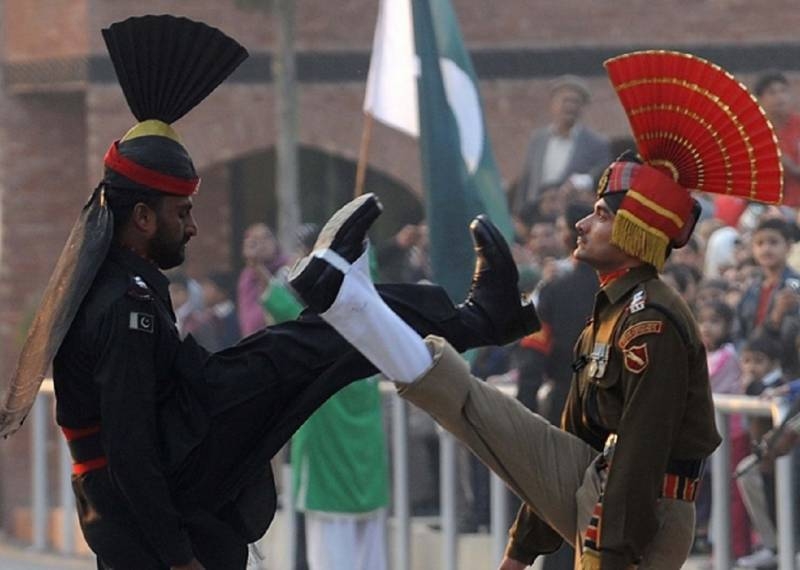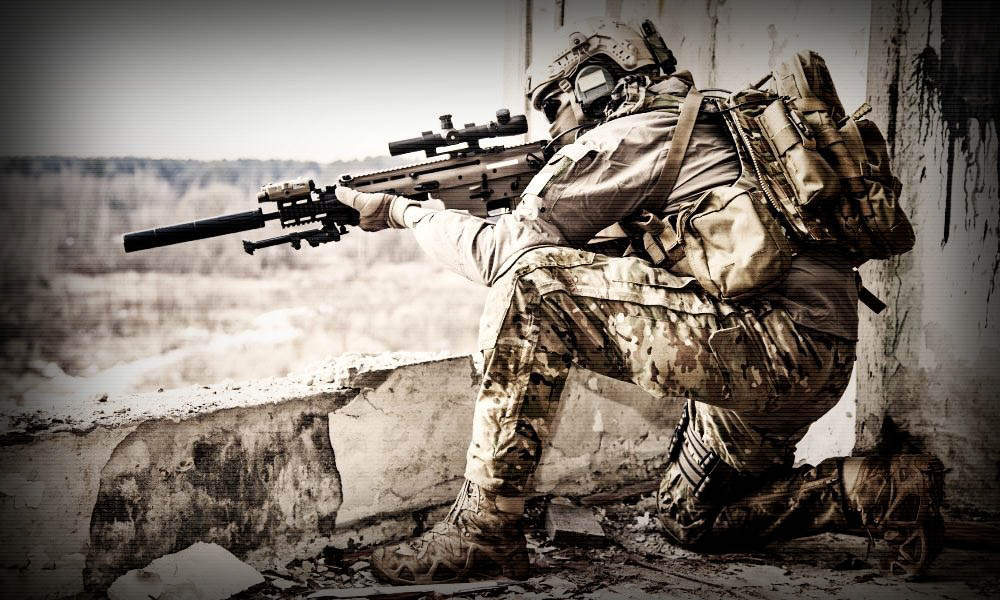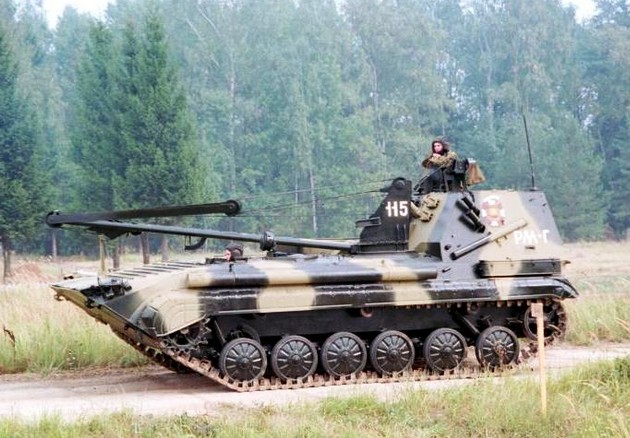Suddenly erupted conflict between India and Pakistan seems at first glance so far from Russia, that we don’t seem to pay much attention to it either. think, somewhere far south, fenced off from us by the highest mountain ranges on the planet, decided to fight a little two countries, known to most of our fellow citizens only from Kipling's tales and films with Raj Kapoor and Mithun Chakraborty. At first glance, this conflict seems to be a purely personal matter of the warring, and if so, then it’s like getting into it with your hands.

But there are still intersection points. Moreover, what is happening on the shores of the Indian Ocean should be of interest to Moscow for two reasons at once.: this is direct economic calculation, and the traditional interest of the superpower in the ongoing geopolitical processes in the world. The first may affect Russia soon enough, in the coming years, and the second is deferred, but from this no less important character for us. So let's try to figure out, what is going on there, and even suggest, what could be the actions of Moscow as in the conflict itself, so around him, in the field of our beloved political settlement.
An analysis of the current geopolitical situation and the prospects for its development shows, that one of the most likely results of the current difficult processes in the world will be the gradual division of the globe into two not very friendly camps. In one will be Russia and China, with some countries that have joined them, in another - USA, Europe and their key allies in the world, like japan, South Korea, Australia etc. This configuration of the political space more or less satisfies the West, but with one significant caveat: if China fails to slow down in development (and ideally throw back), and Russia will suddenly take up the mind and begin to grow at the corresponding pace, pretty soon the West will lose the economic war, and after it will lose everything else.
the, that China can maintain an acceptable rate of economic growth even despite a significant break in economic ties with the West, is quite real. Beijing is making a literal titanic effort to develop the domestic market, to become less dependent on exports. Yes, for this he will need at least another ten years (actually, more, but the Chinese know how to surprise, when it comes to economics), but ten years by the standards of the ongoing geopolitical shifts is almost an instant. And even worse (worse, of course, for the West) - even if we hit Beijing with global sanctions right now, it is unlikely to collapse, since the accumulated safety margin will most likely allow him to cope with large, but still quite solvable difficulties.
You, probably, don't really understand, what does India and Pakistan have to do with it? Sorry, but this long introduction was nevertheless necessary. For now, just believe me - in geopolitics, literally everything is interconnected, how the final checkmate in a chess game can be a consequence of a pawn move, made ten moves ago ...
so, the mentioned configuration of the political, economic space looks minimally acceptable, but still very risky for the West. The position needs to be strengthened. Than? How to balance the economic and military supergiant in conjunction with the raw materials and military? Can, The West should try to create for itself some kind of alternative to China, by including it in your axis?
This option looks very attractive.. And who can become an alternative to China? That's right - India!
Yes, it is India - the state, comparable to China in population, geographic location and convenience. Moreover, the population of India will soon overtake China, and in its geopolitical significance, it is much superior: need to mark, that China is very poorly located, in this sense, he is much inferior to even not very well located Russia.
Do not flatter yourself about the current economic inequality between China and India: starting conditions in modern India are much better, than China had forty years ago, and she needs to catch up much less. With an effective (and usually very effective in such cases) aid from the West, India has every chance of making a powerful economic breakthrough in the next couple of decades, quite comparable to Chinese, and become a very important player in the Knights of the Light squad.
Yes, exactly: India destined for the role of "anti-China", powerful industrial, US and Allied trade and military partner, and possibly, and just the role of a key ally of the Anglo-Saxons. And it should be noted, that the understanding of this in the West has not matured today, which is confirmed by some steps of our beloved "partners" in recent years.
At first, it should be noted, that India is already the world leader in terms of economic growth. In recent years, it has fluctuated at the level 7-8 per cent per annum, which exceeds both the average world economic growth rates, and Chinese indicators. In many ways, this was a consequence of the very benevolent policy of the West in relation to Delhi - investments are actively being made in the country., no sanctions are imposed against Indian programmers, etc..
Secondly, the choice of the West in favor of India is quite eloquently confirmed by the fact, that Washington is becoming cooler with its former key ally in the region - Pakistan. Of course, until it came to a complete break, it’s, Need to think, still to come. but in general,, drift of the American focus of benevolence from Islamabad to Delhi is already visible to the naked eye.
Thirdly, we have repeatedly watched, how actively Americans climb the Indian arms market. Very often, they are direct competitors of our companies., and what’s most interesting - in competitions, declared by the indian side, they win not so often (although more and more), but they can make us feel good.
Weapon control, which country will have to fight, - this is largely the country's control. And American efforts to impose its armaments on India are understandable. But you need to remember, that even a couple of decades ago, India could not count on such loyalty of American sellers of fighters and other military equipment. The relationship was complicated, including, due to Pakistan's possible jealousy. And suddenly such a warming. Why's that?
Well, another stroke to the geopolitical picture of the region. Pakistan-China Relations.
Not a secret, that these states have become seriously close in recent years. This was partly a consequence of the cooling of Pakistani-American relations.. In a situation, when you can no longer count on the former powerful patron, Islamabad willingly went to meet Beijing.
At the same time, China is extremely interested in Pakistan precisely from the point of view of promoting its geopolitical interests.. The reason is very simple: making Pakistan its ally (we will not use offensive words like "vassal"), Beijing is solving the most important strategic task - ensuring its military presence in the Indian Ocean. And, thus he not only "cuts" India, partly devaluing its advantageous geographical position, but also goes almost directly to the Gulf region, where does the Chinese economy get the lion's share of the oil it needs.
The very close proximity of China and Pakistan, although difficult to implement in practice, nevertheless, with the proper level of relations and guarantees, will surely lead to the creation of a powerful transport corridor Beijing - Islamabad. Yes, for this you have to pull it through the Himalayas, but for the Chinese, who built the highest railway line to Lhasa (the capital of Tibet annexed by China), it is unlikely to be such a difficult task. The benefits from it are difficult to overestimate.: in fact, this will mean uninterrupted supply of the Chinese fleet in the western Indian Ocean and the Persian Gulf, even in the context of a possible aggravation of relations with India and its probable allies.
Now we understand a little more, what geopolitical interests converged in this local conflict. There is not the slightest doubt, that everyone is watching what is happening, without exception, any significant world players, and in the event of an aggravation of relations, their reaction will follow immediately.
Let's not forget about the commercial side of the matter.. India has long been associated with Soviet, and then with Russian weapons. In particular, MiG-21 and Su-30MKI fighters have already taken part in the unfolding air battle, and our old man was even shot down. Therefore it is obvious, that any relative defeat of the Indian army in this conflict will automatically become the most powerful anti-advertising of our weapons. With all, as the saying goes, resulting ...
Another aspect of India's possible defeat is its own disillusionment with Russia as a possible ally and supplier of military equipment.. Considering, that behind Pakistan the shadow of China is now clearly visible (also a traditional enemy of Delhi), this will surely accelerate India's drift in the direction the Anglo-Saxons want.
On the other hand, in case of conditional (or not really) victory in India's conflict we can predict China's discontent. As of now, there is nothing to worry about - dissatisfaction with those, that someone does not know how to fight, and they themselves supplied Islamabad with not the best fighters, we'll get through somehow. But in case, if we explicitly get involved in a conflict on the side of India, this can cause serious complications in the bilateral relations of Moscow and Beijing. What to us, of course, not really necessary now ...
That is why we can state the following: Russia is primarily interested in, so that the conflict fades as soon as possible. The situation as a result of the collisions that took place is approximately the same, "All with their own", the existing balance of interests is not violated. It means, that at least we don't lose anything, but the soil for the diplomatic efforts of the parties is now more than enough, so Mr. Lavrov will have enough work for more than one year.
But if the conflict continues and expands, the situation will become too "hot" for Moscow. She cannot afford the defeat of Indian aviation, and therefore, will simply have to provide Delhi with at least informational support: intelligence, analysis of the capabilities of Pakistani aviation, information from satellites and its decoding, etc.. it, probably, not just optimal, but the only possible way now to help Delhi, without getting too involved in the conflict or attracting unwanted attention from the opposing titans. Assistance in the Syrian scenario and highly undesirable, and, will hope, hardly necessary.
Later on, by counting the points of the parties after the conflict, Russia will have to take some steps to minimize the threat of too close rapprochement between Delhi and Washington. The maximum task in this case: rapprochement between Delhi and Beijing mediated by Moscow through the BRICS mechanisms. A task, frankly, almost impossible…
Victor Kuzovkov
Published: lentok Source












